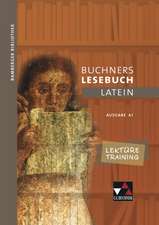Exploring School Leadership in England and the Caribbean: New Insights from a Comparative Approach
Autor Professor Paul Milleren Limba Engleză Paperback – 26 iul 2017
| Toate formatele și edițiile | Preț | Express |
|---|---|---|
| Paperback (1) | 255.76 lei 6-8 săpt. | |
| Bloomsbury Publishing – 26 iul 2017 | 255.76 lei 6-8 săpt. | |
| Hardback (1) | 714.03 lei 6-8 săpt. | |
| Bloomsbury Publishing – 27 ian 2016 | 714.03 lei 6-8 săpt. |
Preț: 255.76 lei
Preț vechi: 330.28 lei
-23% Nou
Puncte Express: 384
Preț estimativ în valută:
48.94€ • 51.24$ • 40.59£
48.94€ • 51.24$ • 40.59£
Carte tipărită la comandă
Livrare economică 10-24 aprilie
Preluare comenzi: 021 569.72.76
Specificații
ISBN-13: 9781350042285
ISBN-10: 1350042285
Pagini: 192
Ilustrații: 10 bw illus
Dimensiuni: 156 x 234 x 18 mm
Greutate: 0.28 kg
Ediția:NIPPOD
Editura: Bloomsbury Publishing
Colecția Bloomsbury Academic
Locul publicării:London, United Kingdom
ISBN-10: 1350042285
Pagini: 192
Ilustrații: 10 bw illus
Dimensiuni: 156 x 234 x 18 mm
Greutate: 0.28 kg
Ediția:NIPPOD
Editura: Bloomsbury Publishing
Colecția Bloomsbury Academic
Locul publicării:London, United Kingdom
Caracteristici
Explores school leader accounts of what they do and why, providing insights into their decision-making
Notă biografică
Paul Miller is Professor of Educational Leadership and Management in the School of Education and Professional Development, University of Huddersfield, UK. In December 2018 he was elected President of the Commonwealth Council for Educational Administration and Management (CCEAM). In addition, he a member of Council of the British Educational Leadership Management and Administration Society (BELMAS) and immediate past president of the Institute for Educational Administration and Leadership-Jamaica (IEALJ). He is Fellow of the Academy of Social Sciences and Principal Fellow of the Higher Education Academy.
Cuprins
Introduction1. The Changing Nature of School Leadership 2. Curricula and Instructional Leadership 3. Diversity Leadership 4. Technology Leadership 5. Policy Leadership 6. People Leadership7. Entrepreneurial and Safety Leadership8. Evaluations,Implications and ConclusionsReferencesIndex
Recenzii
There is much to be learned from a rigorous comparative analysis of educational leadership, and Paul Miller's excellent text fully illustrates the value of such an approach. By cleverly welding together practical examples and theoretical insights, this text offers many new understandings for researchers, policy-makers and practitioners in educational leadership in all contexts. Added to that, the book's clear and energetic writing style makes the text readily accessible for all readers.
This book joins the ranks of scholarly literature on school leadership. It takes the discussion in interesting pathways that highlight the similarities and differences that exist in schools in two different socio-cultural and geographical locations. Its relevance resounds in the two countries' educational contexts, but more so in the Caribbean where research activities are not 'inscribed' on educators' work contracts. Thus, school leadership practices are guided by lived experiences, a practical brand of indigenised pedagogy and a healthy measure of autonomy. The comparative approach that this book has taken aptly captures the individualism and humanness of principals in both countries, attributes that are rarely noticed by most.
The provision of a revolutionary approach towards the assessment of leadership in two different contexts is captured in this book. Against these contexts, the book focuses on the practical and theoretical approaches used, where inspirational insights into the real issues that affect school leadership are provided. In essence, it gives the template and tools necessary, to guide the development of excellent leaders in different kinds of environments. This book supports the idea that with improvement through standards in the education system and control, the emphasis is now on standards instead of structures and creativity in leading schools. Written to support excellence, it essentially indicates the need to ensure that school leaders are provided with access to research and innovations along with the ability to synthetize and utilize best practices in order to improve the quality of education in schools. Outlined by the author are practical examples of schools' real life experiences, in two entirely different contexts that can provide guidance to schools' leaders, as needed, to bring about leadership of the highest quality. Dealing with the areas of duty, accountability, social justice, diversity in addition to other real applicable issues, are enunciated, clarified and documented in such a way to provide meaningful support to school leaders. Commendations are extended to the writer for developing this very relevant book as this will be essential reading for both new as well as all those experienced school leaders across the world who would like to improve their education development in leadership.
This book joins the ranks of scholarly literature on school leadership. It takes the discussion in interesting pathways that highlight the similarities and differences that exist in schools in two different socio-cultural and geographical locations. Its relevance resounds in the two countries' educational contexts, but more so in the Caribbean where research activities are not 'inscribed' on educators' work contracts. Thus, school leadership practices are guided by lived experiences, a practical brand of indigenised pedagogy and a healthy measure of autonomy. The comparative approach that this book has taken aptly captures the individualism and humanness of principals in both countries, attributes that are rarely noticed by most.
The provision of a revolutionary approach towards the assessment of leadership in two different contexts is captured in this book. Against these contexts, the book focuses on the practical and theoretical approaches used, where inspirational insights into the real issues that affect school leadership are provided. In essence, it gives the template and tools necessary, to guide the development of excellent leaders in different kinds of environments. This book supports the idea that with improvement through standards in the education system and control, the emphasis is now on standards instead of structures and creativity in leading schools. Written to support excellence, it essentially indicates the need to ensure that school leaders are provided with access to research and innovations along with the ability to synthetize and utilize best practices in order to improve the quality of education in schools. Outlined by the author are practical examples of schools' real life experiences, in two entirely different contexts that can provide guidance to schools' leaders, as needed, to bring about leadership of the highest quality. Dealing with the areas of duty, accountability, social justice, diversity in addition to other real applicable issues, are enunciated, clarified and documented in such a way to provide meaningful support to school leaders. Commendations are extended to the writer for developing this very relevant book as this will be essential reading for both new as well as all those experienced school leaders across the world who would like to improve their education development in leadership.


















